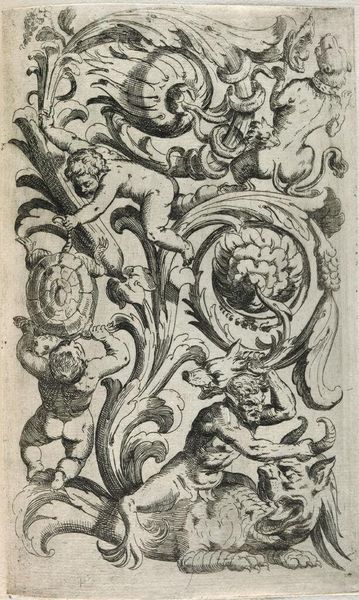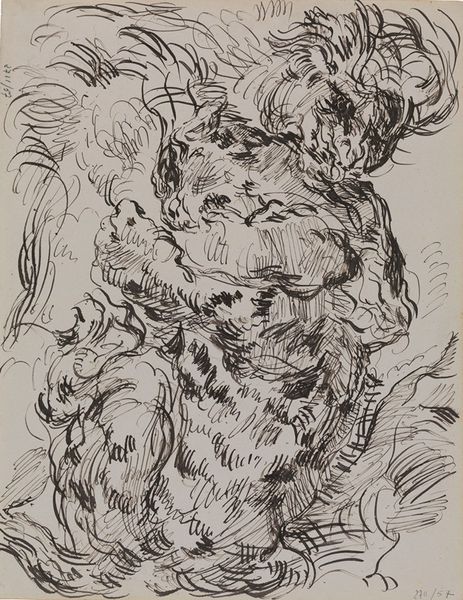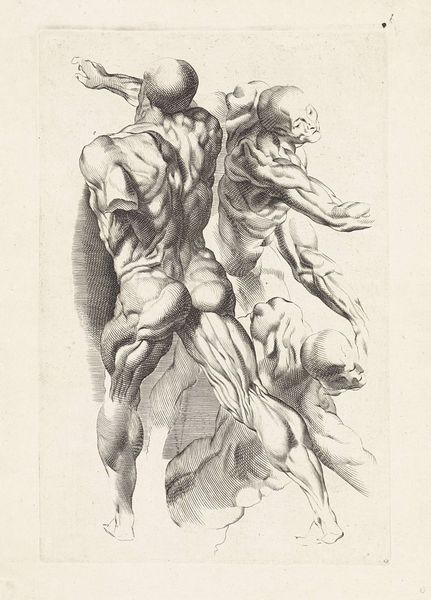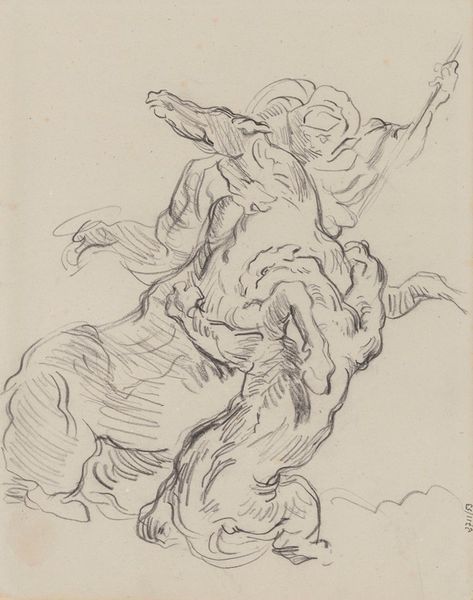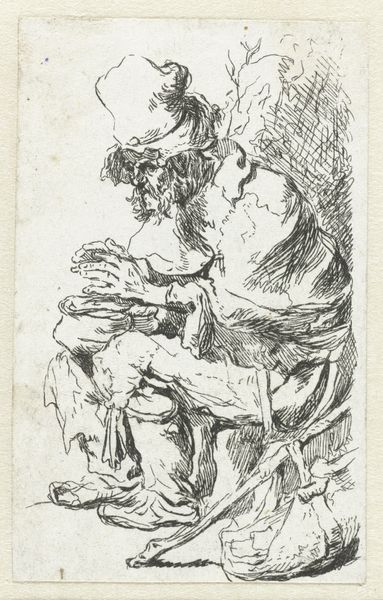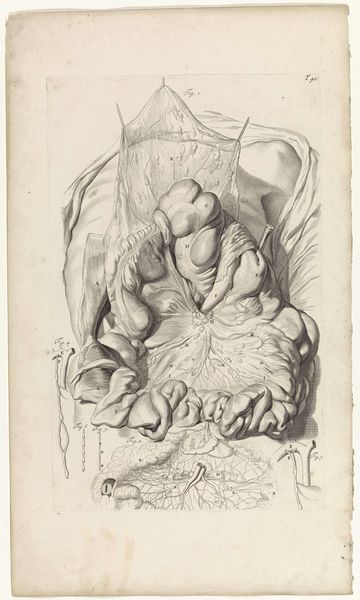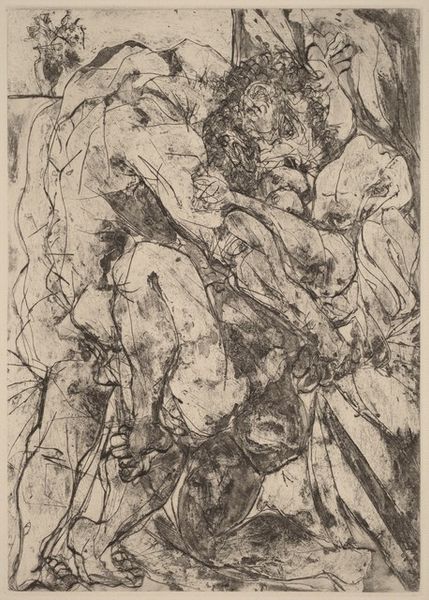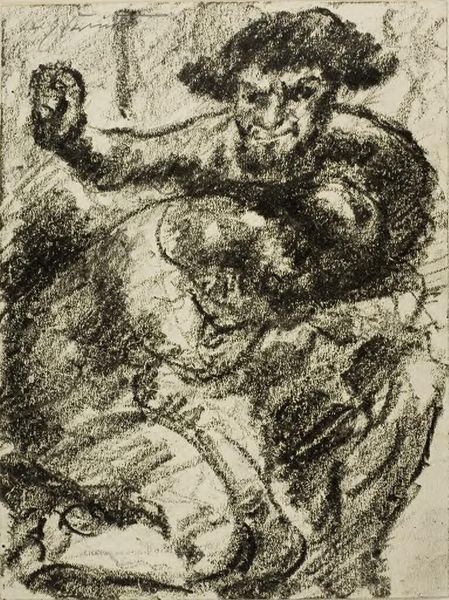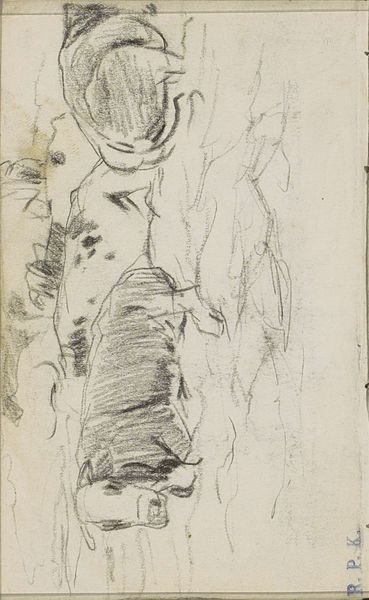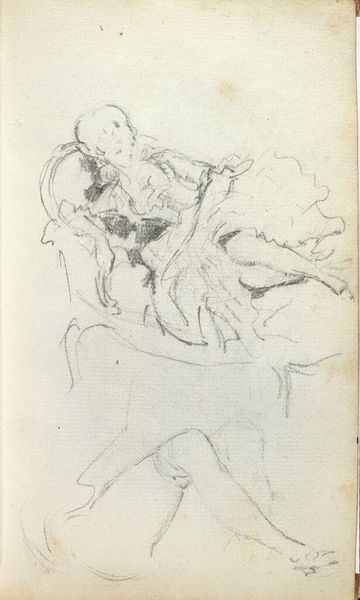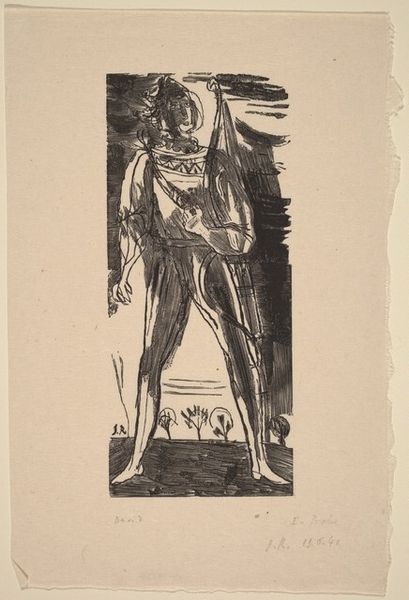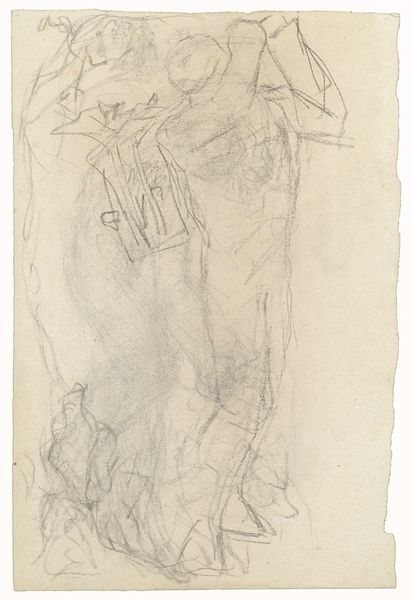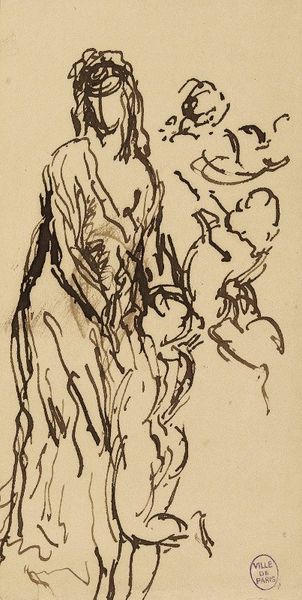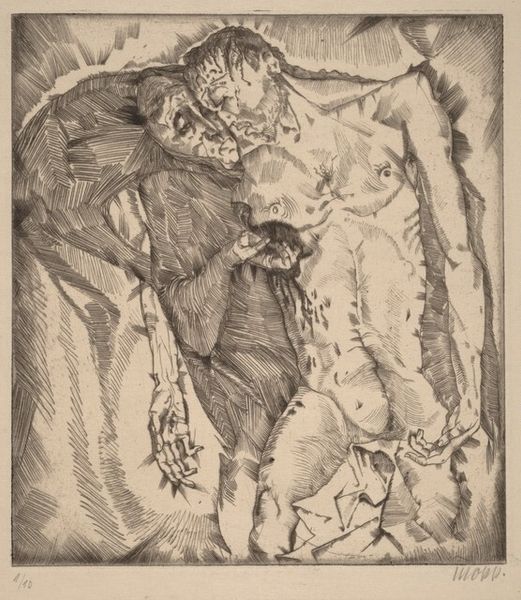
drawing, paper, ink
#
drawing
#
figuration
#
paper
#
ink
#
plant
#
sketch
#
line
#
botany
Copyright: Avigdor Arikha,Fair Use
Curator: This is "Leaves," a 1994 ink on paper drawing by Avigdor Arikha. Quite arresting, isn't it? Editor: It certainly is! My initial thought is… well, turbulent, almost like a storm trapped in a small frame. Curator: That's insightful. The stark black ink against the pale paper creates such contrast, emphasizing the density and the flurry of the leaves. Arikha's linework here—it's really economical, yet conveys so much volume. It looks like it only took him 5 minutes! Editor: There’s something almost…incomplete about it too, in the best way. Like a fleeting observation captured just before it disappears, a raw glimpse. It reminds us how brief moments of noticing can be. Curator: I completely understand. Arikha always worked "alla prima"—directly from life, in one go, no corrections. That immediacy, that’s what grabs us. This insistence of working from life directly is pretty bold I think, but so characteristic for him. Editor: It feels intensely present. The absence of color forces us to focus on form and texture. But I do feel like there’s an almost suppressed color memory in here; in some ways it reminds me of those washed-out summer memories of our youth... It’s funny, you can sense nature as being very colorful from what is fundamentally an absence of it. Curator: Exactly! And Arikha really abandoned the language of abstract painting later in his career and he kept focusing on figuration and working from life like you said before. There’s a lovely quote from him—"We see only what we know." Editor: I love that quote, it encapsulates so much. It seems to say how the beauty we discover is filtered through and enriched with our history and awareness... Almost like the artwork in front of us. It has me staring in wonder, thank you for this lesson. Curator: It’s a sentiment I’m grateful we could share, too. I invite the listeners to also spend an intimate moment with the piece, with openness and sensitivity—we should allow it to speak back at us.
Comments
No comments
Be the first to comment and join the conversation on the ultimate creative platform.
